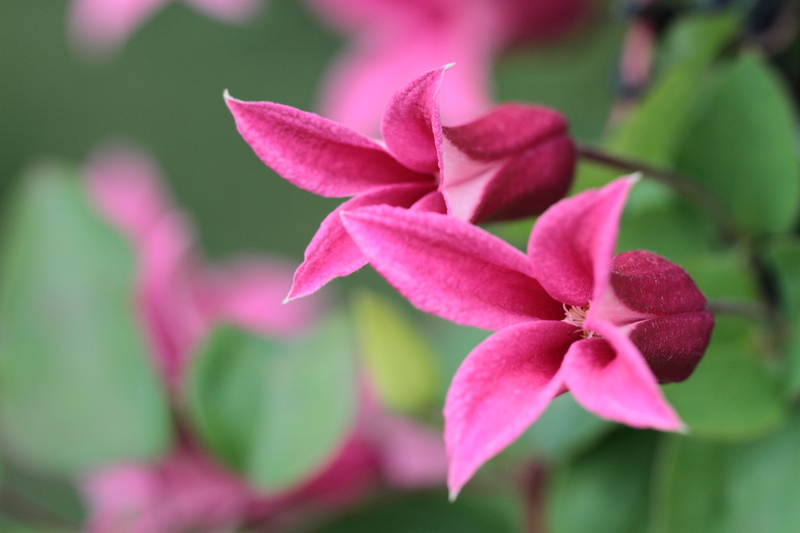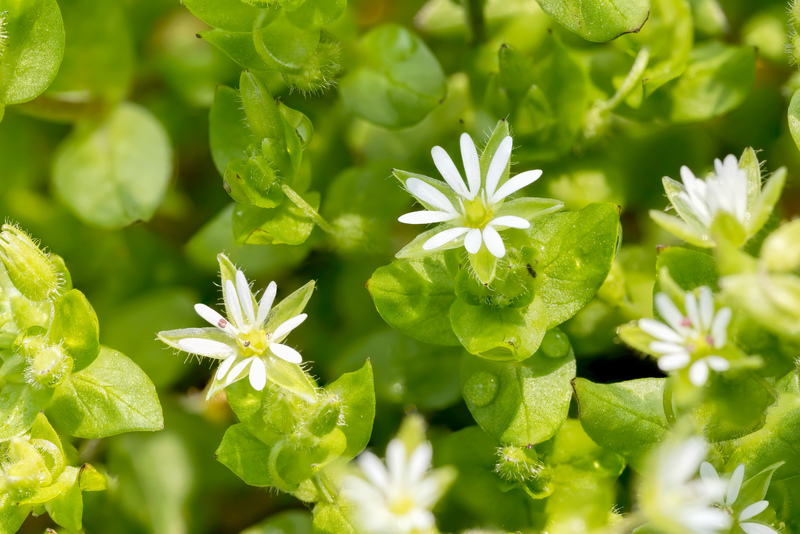Crucial Tools for Every Gardening-Enthusiast's Toolkit
Posted on 07/09/2025
Crucial Tools for Every Gardening-Enthusiast's Toolkit
Gardening is so much more than planting seeds and watching them grow--it's an art, a science, and a lifelong passion for many. Whether you're an experienced gardener or have just begun cultivating your love for green spaces, having the right gardening tools is absolutely essential. Equipping yourself with the best gardening essentials will make tasks more enjoyable, efficient, and successful. In this comprehensive guide, we explore the crucial tools every gardening-enthusiast should have in their toolkit, so you can create and maintain the garden of your dreams.

Why Quality Gardening Tools Matter
Gardening isn't just a weekend hobby--it's an investment in your well-being and your home. The right essential gardening equipment can save you from sore muscles, prevent plant damage, and make each gardening session productive and satisfying. Using low-quality or inappropriate tools can not only hinder your progress but may also lead to frustration and costly mistakes. In this article, we'll detail those must-have gardening tools every enthusiast should own, highlight their uses, and offer pro tips for maintaining them.
Top Gardening Tools Every Enthusiast Needs
- Hand Trowel
- Pruning Shears (Secateurs)
- Garden Fork
- Spade
- Hoe
- Watering Can or Hose
- Gardening Gloves
- Wheelbarrow or Garden Cart
- Garden Rake
- Weeder
- Loppers
- Garden Knife
Let's dive into each of these vital gardening instruments and see why you shouldn't garden without them.
1. Hand Trowel: The Gardener's Extension
The hand trowel is arguably the most versatile tool in any garden-lover's arsenal. Perfect for transplanting seedlings, digging holes for new plants, removing weeds, and breaking up soil, this small but mighty implement is indispensable for precise work. Look for a trowel with an ergonomic handle and a sturdy stainless-steel scooper for maximum durability.
- Tip: Choose a hand trowel with measurement markings to lighten transplanting tasks.
2. Pruning Shears: Sharpness for Healthy Growth
Also known as secateurs, pruning shears are an absolute must for snipping off dead or diseased branches, shaping shrubs, and harvesting fruits or flowers. Clean, sharp blades ensure you make gentle cuts that don't stress or tear your plants. Invest in bypass pruners for live stems and anvil pruners for tough, dead branches.
- Maintain your pruners by wiping them down after use and sharpening the blades regularly.
3. Garden Fork: Master of Turning and Aeration
When breaking up dense soil or aerating your garden beds, a garden fork is your go-to tool. Its long, sharp tines make easy work of digging out root vegetables or integrating compost and fertilizer into your soil. A good garden fork should be robust and well-balanced.
- Pro Tip: Use your fork before planting in new ground to check for rocks, hard clumps, or pests.
4. Spade: The Digging Workhorse
No list of essential gardening tools would be complete without a spade. Spades are perfect for digging, edging, and moving soil. Their flat, sharp blades can neatly cut paths through turf or delineate garden beds. Opt for one with a comfortable D-shaped handle to reduce hand fatigue.
- Did you know? Spades are different from shovels; spades have a straight edge, making them ideal for slicing soil, whereas shovels have curved blades for scooping.
5. Hoe: The Weapon Against Weeds
Garden hoes are vital for controlling weeds and cultivating the soil. Different types--such as draw hoes, scuffle hoes, and Dutch hoes--were designed for specific tasks. The main function is to sever weed roots at the surface, keeping beds tidy and letting your plants thrive.
- Tip: Keep your hoe blade sharp for efficient weeding.
6. Watering Can or Hose: Lifeline for Plants
Consistent watering is crucial, and your choice between a watering can and a hose depends on the size of your garden. Cans are perfect for container plants, while hoses with a spray attachment make quick work of larger gardens. Look for watering cans with balanced handles and a detachable rose for even distribution.
- Eco-Friendly Advice: Invest in a rain barrel to collect water for your garden, lowering your environmental footprint.
7. Protective Gardening Gloves
Every gardener should own high-quality gardening gloves. These not only keep hands clean but also protect them from cuts, thorns, chemical fertilizers, and pests. Breathable, water-resistant gloves are ideal for long sessions and wet conditions.
- Always store gloves in a shaded, dry place to prevent deterioration.
8. Wheelbarrow or Garden Cart
Transport potting soil, mulch, heavy pots, or harvested crops with a sturdy wheelbarrow or garden cart. Choose one with a comfortable grip and puncture-proof tires for smooth maneuvering, even in rugged patches of your garden.
9. Garden Rake: Smoothing and Cleaning
From clearing up fallen leaves to leveling soil and spreading mulch, a garden rake is a versatile necessity for every gardening enthusiast's toolkit. Steel rakes are ideal for heavy work, while plastic or bamboo versions are gentle on lawns.
10. Weeder: Specialist for Pesky Intruders
Manual weeders are ideal for ejecting stubborn weeds from tight spots without harming the surrounding roots. Their narrow blades and comfortable grips help you maintain neat borders--especially in flower beds where precision is key.
- Tip: Pull weeds after light rainfall when the soil is softer for easier removal.
11. Loppers: Branching Out
For pruning thicker branches that hand shears can't handle, loppers are indispensable. These long-handled pruners give you extra leverage and allow you to reach further into trees and shrubs. Bypass loppers are ideal for live plants; anvil-style works well for deadwood.
12. Garden Knife: The Multi-Tasker
The garden knife, such as the Japanese hori-hori, is a versatile multi-tool for planting, cutting roots, dividing plants, and opening bags. Look for one with a serrated edge and depth markings. This underrated addition can quickly become your most-reached-for item.
- Safety Note: Store your garden knife with a sheath and practice good handling to prevent accidents.
Optional Advanced Tools for Gardening Aficionados
If you've mastered the basic must-have gardening tools, consider expanding your toolkit with these specialized items:
- Soil Tester: Essential for checking pH and nutrient content.
- Garden Scissors: Delicate trimming of herbs and flowers.
- Plant Ties & Stakes: Useful for supporting climbing plants and saplings.
- Compost Bin or Tumbler: For converting organic waste into nutrient-rich soil.
- Kneeling Pad: To protect knees during lengthy planting or weeding sessions.
Power Tools for Bigger Jobs
When you graduate to landscaping and larger projects, invest in electric or battery-powered tools:
- Cordless Hedge Trimmer
- Lawn Mower
- Leaf Blower
- String Trimmer (Weed Whacker)
- Rototiller
Note: Always follow manufacturer safety guidelines and use protective gear when operating power equipment.
How to Care for and Maintain Your Gardening Tools
Protect your investment and make your tools last with these quick maintenance tips:
- Clean After Every Use: Rinse off soil and sap, dry thoroughly, and store away from moisture.
- Sharpen Blades: Keep cutting tools keen for safer and cleaner cuts.
- Oil Metal Parts: Prevent rust by lightly oiling blades and joints.
- Store Well: Hang tools on a rack or store in a waterproof box.
- Check Handles: Look for splinters and cracks; sand or replace if necessary.
By regularly caring for your toolkit, you'll improve garden health, save money, and ensure gardening equipment is always ready for action.

Choosing the Right Gardening Toolkit for You
Your gardening style, garden size, and physical abilities will influence your tool selections. Consider the following when building your toolkit:
- Material Quality: Invest in stainless steel or durable alloys.
- Comfort: Ergonomic, padded handles and lightweight designs minimize strain.
- Suitability: Select tools truly tailored for your preferred gardening activities.
- Budget: Spend more on the essentials, then gradually expand your collection.
Don't forget to periodically assess your toolkit--it's best to replace any tool that shows signs of excessive wear or damage to maintain efficiency and safety in your gardening routine.
Final Thoughts: Unlock Your Garden's Potential
In summary, having a well-curated set of essential gardening tools can transform how you experience and succeed in your gardening journey. From the humble hand trowel to the mighty spade, each tool has a unique role. With ongoing care and wise investments, your gardening-enthusiast's toolkit will serve you for many fruitful years. Now, grab your gloves and favorite implements, and step into your green haven with confidence and excitement. Happy gardening!
Start Building Your Gardening Toolkit Today
Whether you're tending balcony planters or sprawling landscapes, having the right gardening tools at your fingertips will elevate every task. Let this comprehensive checklist guide your next purchase and ensure your green thumb has all it needs to flourish. The garden of your dreams is just a toolkit away!
Latest Posts
Cost-Effective Tips for a Low Maintenance Garden Delight
Inspire Peace and Calm with a Beautiful Zen Garden Design
Bringing Greenery Indoors with Container Gardening

